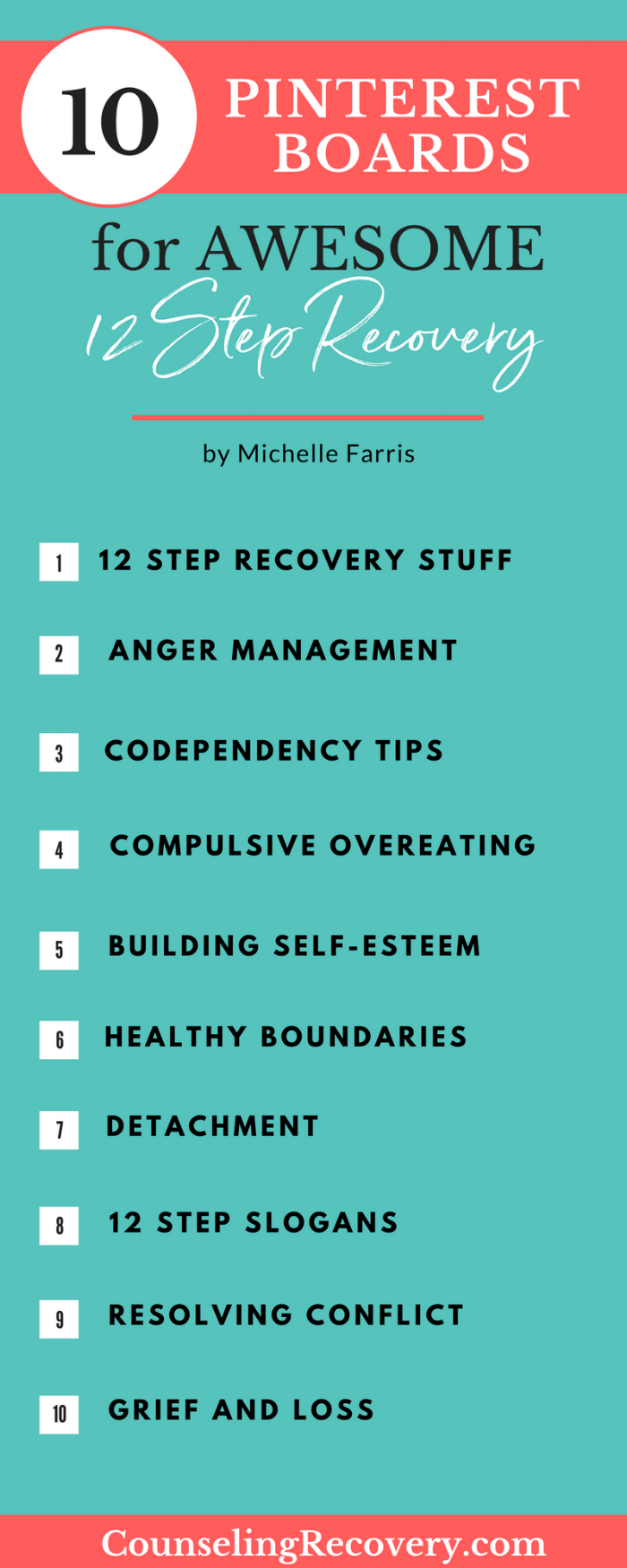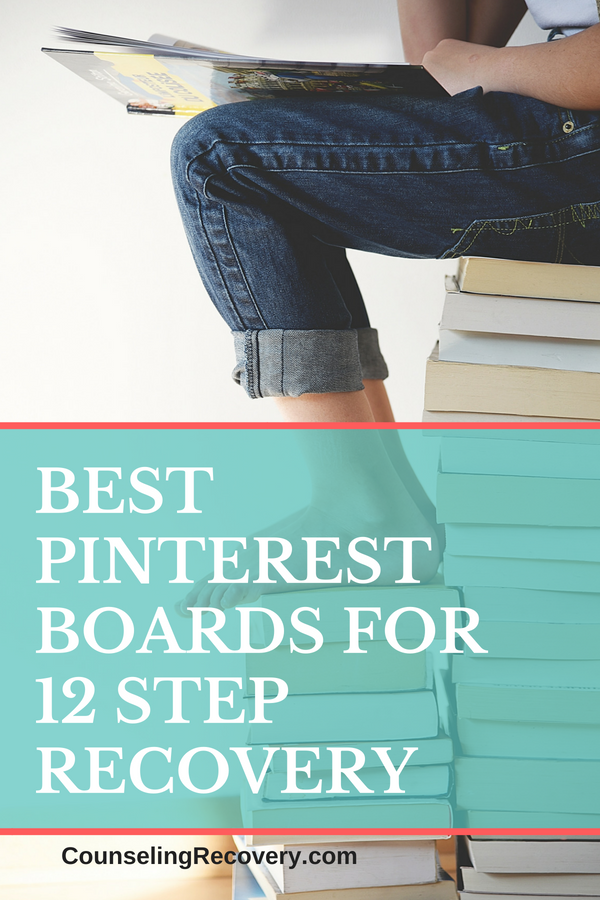Top Ten Pinterest Boards For Awesome 12 Step Recovery
12 step recovery is my first love because it shows you how to live a happier life.
Here are my Pinterest boards to help with all the challenges faced in living a sober life. The process of growth can be a rollercoaster of highs and lows and sometimes you need help fast - so consider this here is my gift to you.
Here is your access to helpful tips related to all things created to living a conscious, sober life.
1. 12 Step Recovery
There is a LOT to learn in recovery. When you first get into recovery, learning how to live sober can be overwhelming. This is your treasure chest including tips to prevent relapse as well as how recovery works and how to thrive one day at a time!
2. Anger Management
The Big Book of Alcoholics Anonymous says that anger is "the dubious luxury of normal men." When anger isn't managed well it can threaten recovery.
When you stop using substances, old feelings come back full force. Learning how to manage them is one of the most challenging parts of sober life. But once you learn the tools, your confidence grows and relationships get healed.
3. Codependency Tips
In early sobriety relationships issues often surface. Difficulties with people pleasing, low self-esteem, setting boundaries and over-giving are traits of codependency. If these issues aren't identified, sobriety can be limited. Many addicts relapse over a break up or a trauma because they don't know how to ask for help or identify what they need.
Learning how to heal codependent behaviors provides the type of serenity that makes a sober life and happy one.
4. Compulsive Overeating
Food addiction takes many forms from binge-eating, under-eating to compulsive exercise and taking laxatives. Women are not the only ones affected. Recent studies shown that 40% of binge eaters are men.
Many alcoholics find themselves using food compulsively once sober. Alcoholics often replace their craving for liquid sugar by eating tons of sweets. Having a sober life is more likely when food doesn't rule your life.
5. Building Self-esteem
Addicts struggle with low self-esteem which often triggers the addiction in the first place. Learning how to feel good about yourself effects everything - picking partners, standing up for yourself, even getting promotions can't happen if you don't think you deserve it.
You can feel good about yourself by facing the past and practicing forgiveness. The more tools you have the better equipped you'll be to accept and love yourself exactly as you are.
6. Healthy Boundaries
Boundaries are HUGE in recovery. Without them you'll feel resentful and taken advantage of a lot. That's no fun! Learn what your boundaries are so you can take care of yourself in relationships and at work. This includes saying no nicely, and knowing the difference between boundaries and control.
7. Detachment
Sometimes you need to just let go. Addicts fight this because they want control. The hardest part of recovery is letting go of control. Accepting life on life's terms takes patience and lots of practice. For instance, when someone you love is addicted, you feel incredibly powerless. You want to help but nothing you do makes a difference.
Knowing how to detach with love preserves your relationships and keeps you sane. Dealing with someone struggling with addiction or mental illness takes the ability to detach when necessary.
8. 12 Step Slogans
When you need a quick attitude adjustment, the slogans work. They remind us to focus on today, and let go ofd of the small stuff. These sayings are incredibly popular even outside the program because they reduce negative thinking and gives us a healthier focal point.
9. Resolving Conflict
Trying to resolve things in recovery it can be a real mess. Most of us didn't learn healthy skills growing up so doing what you were learned as a kid isn't necessarily healthy. Learning how to resolve things and say what you mean without blame or shame is the focus.
10. Grief and Loss
Ending relationships is another challenge in recovery. When you don't let yourself feel the grief, it can lead to depression, anxiety and even relapse. Any change constitutes a loss, even a positive one. Some common losses are divorce, unemployment, death, moving our of town, loss of a pet, a home, etc.
Living in recovery means learning from every experience. These pins are meant to show you how to do that one day at a time with grace and dignity.



 Best Pinterest Boards for 12 Step Recovery
Best Pinterest Boards for 12 Step Recovery